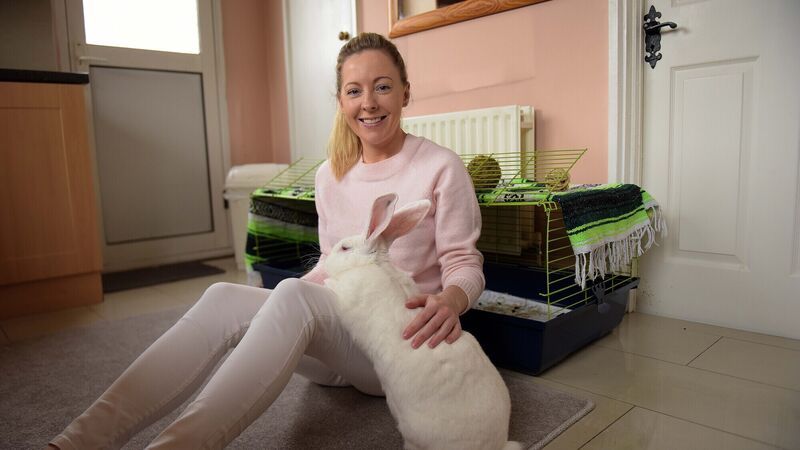Animal testing continues to raise hackles in some quarters

Gemma Lanigan, who runs Rabbit Rescue Ireland, in her kitchen with Alice the rabbit who has a laboratory serial number tatooed on her ear. Picture: Moya Nolan
Rabbits which were bred for testing in labs in the University of Galway have been rehomed for the first time, instead of being put to sleep, in a move welcomed by campaigners.
Figures released to the show 42 rabbits were used for scientific research by the university since 2020, a small proportion of the total animals used for testing in Irish labs across the country.











